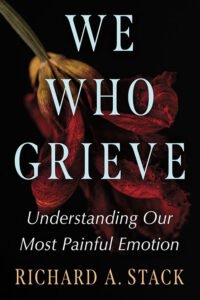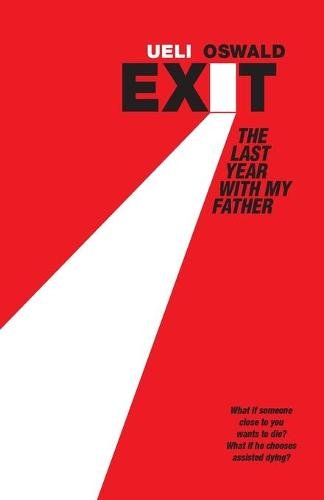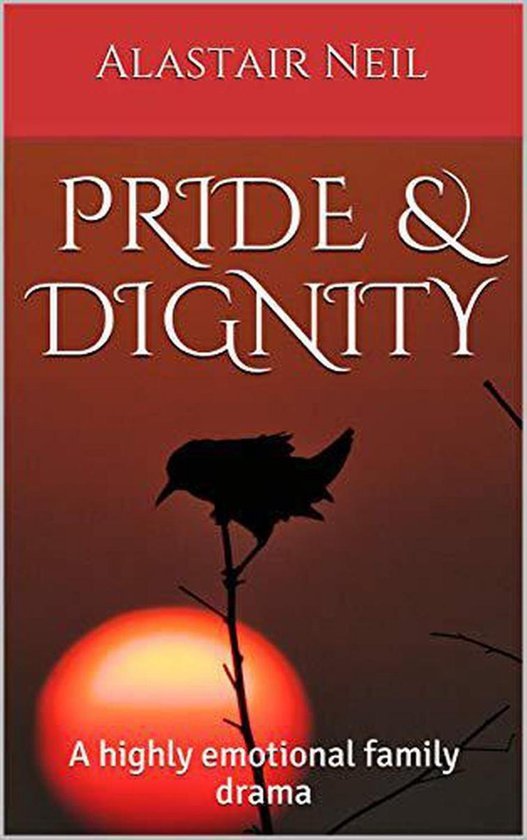Novels on assisted dying
2024

We Who Grieve, Understanding Our Most Painful Emotion
This book is meant to be a comforting companion to those in the throes of grief. It provides guidance to process bereavement for a wide range of reasons and relationships. The book also includes useful information for non professionals who seek to be supportive.

Deseénme Un Buen Viaje: Memorias de Una Despedida
A principios de 2022, mi padre, Carlos Alberto Montaner, me encomendó la misión más difícil y dolorosa de mi vida: «Te pido que me ayudes a morir».
Más de seis años después de ser diagnosticado en Estados Unidos con Parkinson sus capacidades físicas habían mermado considerablemente y la enfermedad comenzaba a hacer mella en sus facultades cognitivas. Carlos Alberto Montaner, que había dedicado su vida al desempeño intelectual, el activismo político y a expresar sus opiniones en una columna sindicada en América Latina, España y Estados Unidos, decidía el final de su vida antes de que la enfermedad le arrebatara del todo su autonomía física e intelectual. Él deseaba regresar a Madrid, donde había vivido más de cuarenta años y, como ciudadano español, acogerse a la Ley de Eutanasia recientemente aprobada en el Congreso.
Deséenme un buen viaje es una crónica íntima de su trayectoria sin retorno, y la de su hija junto a él, con el trasfondo de la eutanasia. Se trata de un camino lleno de obstáculos e incertidumbre; pero también es un recorrido extraordinario por las emociones, la comunión íntima y la perseverancia frente a la adversidad. Cuenta un viaje del desarraigo –las señas de identidad de una familia marcada por el exilio tras el triunfo de la revolución en Cuba– hacia el arraigo que significó para ellos retornar a España, su segunda patria.
«Gina Montaner ha escrito un credo imprescindible para entender la vida y valorar la muerte. Valiente, sincero y conmovedor. No dejará a nadie indiferente por sus enseñanzas y su sabiduría» -Sonsoles Ónega

Winter's End - Dementia and Dying Well
Professor Cohen is a palliative medicine researcher and professor emeritus of psychiatry at Tufts University School of Medicine. He is the author of No Good Deed and A Dignified Ending. In Winter’s End, he chronicles the final nine months of the life of Dan Winter, who has early-onset Alzheimer’s disease, and who decides to end his own life while he still has capacity. The book is an interesting hybrid of non-fiction narrative, clinical data and contemporary experience about the devastating consequences of dementia. It appears like a textbook in the Oxford style, with numbered scientific, literary and media links as footnotes. But it reads like a memoir, illuminating and engaging, informed by the author’s online conversations with Dan and his husband, and by communication with others in the fields of dementia and assisted dying. It describes what Dan sees as his end-of-life choices, and his dilemmas when he tries to bring his close family into agreement with him as he makes his decision. For readers seeking current information, this rigorously researched book is rich in references to scientific papers and personal experiences. For those with an interest in the human narrative, Dan’s story is a powerful testament to one man’s brave determination to bring his illness and his life to a dignified end.
2023
2022

The day I die











